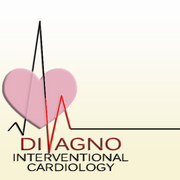Does Taking Aspirin Daily Prevent Heart Attacks?

Aspirin is a common over-the-counter medication that also functions as a blood thinner that prevents clots from forming. Blood clots are among the leading causes of strokes and heart attacks. Taking one white pill a day has been touted as preventing heart attacks, but is it really that simple? Here, learn what heart doctors want you to know about aspirin as part of cardiac care.
Aspirin & Heart Attack Prevention: What to Know
How Does It Work?
Whenever the body sustains a wound, its blood clotting-cells—or platelets—accumulate at the affected area to stop continual blood vessel bleeding. These cells can also form within blood vessels attached to the heart, causing a blockage that results in a heart attack.
Narrow blood vessels from high cholesterol levels increase the heart attack risk. By preventing clotting actions, aspirin can potentially stop a heart attack from happening.
Who Should Take Aspirin Daily?
 Heart doctors recommend aspirin therapy for individuals at high risk of heart attacks or those who have already had a heart attack or stroke. They may also suggest daily aspirin intake if the patient is at risk of heart disease due to factors such as hypertension and tobacco use.
Heart doctors recommend aspirin therapy for individuals at high risk of heart attacks or those who have already had a heart attack or stroke. They may also suggest daily aspirin intake if the patient is at risk of heart disease due to factors such as hypertension and tobacco use.
Patients who have had coronary bypass surgery, coronary artery disease-related chest pain, or have a stent in their coronary artery are also aspirin therapy candidates. The U.S. Food and Drug Administration notes that there is no evidence that people who haven’t experienced a heart attack and aren’t at risk would benefit from taking aspirin daily.
When Is Taking Aspirin as Heart Attack Prevention Dangerous?
Aspirin should not be used in conjunction with other blood thinners such as dabigatran (Pradaxa), warfarin, apixaban (Eliquis), or rivaroxaban (Xarelto) because it increases the risk of internal bleeding. Those with a history of gastrointestinal bleeding and ulcers, severe liver disease, kidney failure, or clotting disorders such as anemia should avoid aspirin therapy as well.
If daily aspirin intake is right for the patient, the heart doctor will recommend a low dose, such as 75 to 150 milligrams.
Discuss your aspirin therapy candidacy with the heart doctors at DiVagno Interventional Cardiology, MD, PA in Rochelle Park, NJ. Dr. Leonardo DiVagno offers over 20 years of experience and works with a talented team to treat a range of heart issues, including high blood pressure and chest pain. Call (201) 845-3535 to make an appointment or visit the heart doctor online for information about cardiac screening.
About the Business


